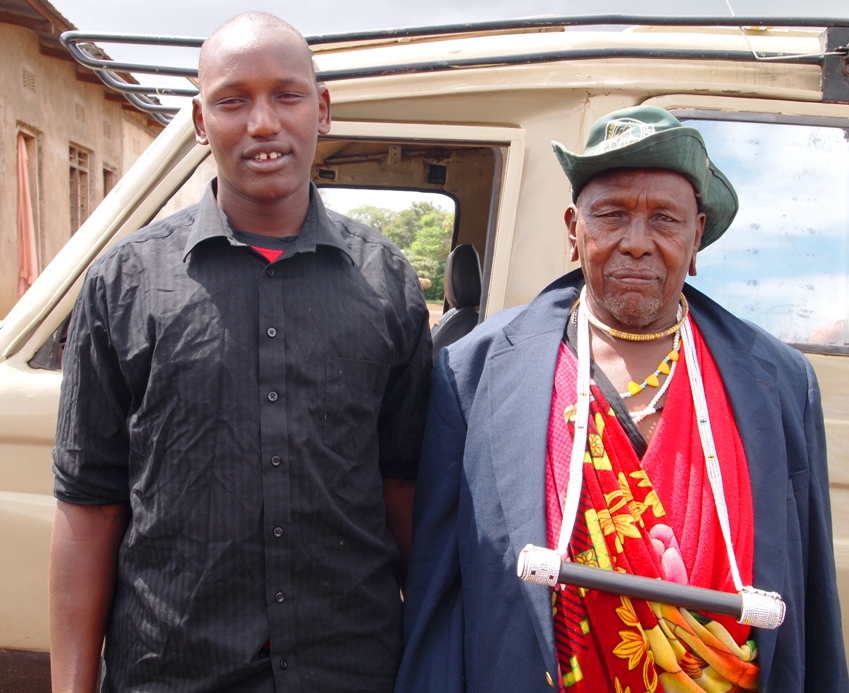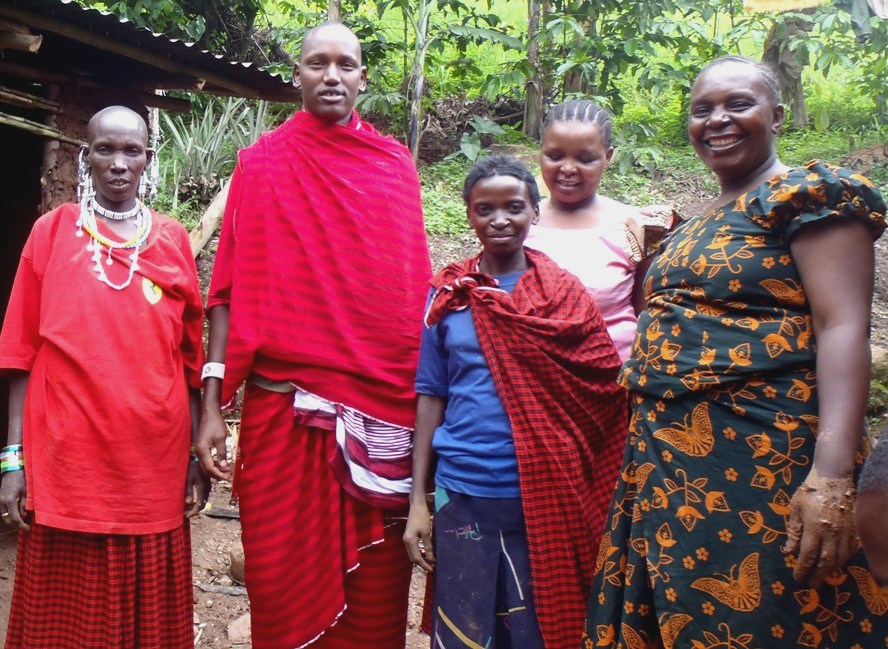Kisioki Lengoije Moitiko, Project Manager-in-Chief, Director, ICSEE(T)
Kisioki’s story, by Robert V. Lange
Born in October, 1986 in the Maasai village of Selela, in Monduli District, Tanzania. In 2004, Kisioki graduated from secondary school in Mto wa Mbu, at the form 4 level. Kisioki’s family, his father with many wives and dozens of children, needed his financial input from early on, and Kisioki began earning an income with work in a safari lodge. He combined work with study and earned a certificate in Animal Health, from the Tengeru Animal Health College, and an advanced certificate in Wildlife Management from the Tropical Institute.
We find that new donors often come with regions where they have other projects going, and want to add our stoves for health, comfort, and conservation. We are happy to work with these programs and to take on the logistical and implementation challenges posed by each new region. Kisioki invents the first step in all outreach situations, bringing the creativity, flexibility, and commitment that makes the difference.
Serving historic change in gender roles
-Paini Lorwasa, Installation Team, Eluwai, Tanzania
Committed to the success of women like Paini, in new roles, Kisioki provides oversight and support for the Project’s Installation Team training and logistics. In addition, he serves as a translator and advisor for the Monduli Women’s Pastoralist Organization (MPWO). The women’s group sets its own aims and is self-governed. They set up an initial livestock business to fund shared group initiatives.
With dry season coming, it is a bad time to sell bulls because the price is low. Dedicated to the group’s success, Kisioki is sharing the collective male livestock knowledge accumulated by Maasai warriors over centuries, making sure the bulls thrive during the dry season onto a good market price in rainy season, in support of the MPWO.
As Project Manager, Kisioki leads the village men in embracing the stoves and supporting women in their new roles. He demonstrates stove benefits, and helps them realize their increased status when their wives are honored with election to the Maasai Women’s Installation Teams.�� Kisioki’s strategic and diplomatic leadership is helping to build a lasting change.
Managing a growing staff for excellent customer service
In addition to the Women’s Installation Teams in each Project area, we also have a highly competent, devoted staff of men stationed near the Project villages. Because we don’t just “sell and run” our commitment to good customer service requires excellent organization and oversight, with Kisioki at the helm.
Personnel management is never easy, especially when jobs are hard to find. Kisioki’s ability to recruit, train, and retain talented staff is a big part of our success.
boma installation. Those were supported by our PEER grant from the National Academy of Science and USAID, Power Africa.
 |
|
Maasai home, panel, and electrical distribution box at one of the boma pilot project sites
|
We then head to Washington DC to meet with the World Bank Cookstove Taskforce, followed by meetings with the USAID, and the National Academy of Sciences.
We’ll discuss our multi-sector approach to health, conservation, and empowerment,. We aim to explore scaling rural electrification. It is important to reduce the gap between the cost of what people need and what they can afford to pay.



 International Collaborative for Science, Education, and the Environment
International Collaborative for Science, Education, and the Environment